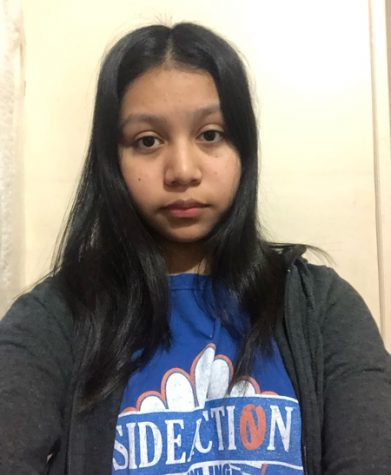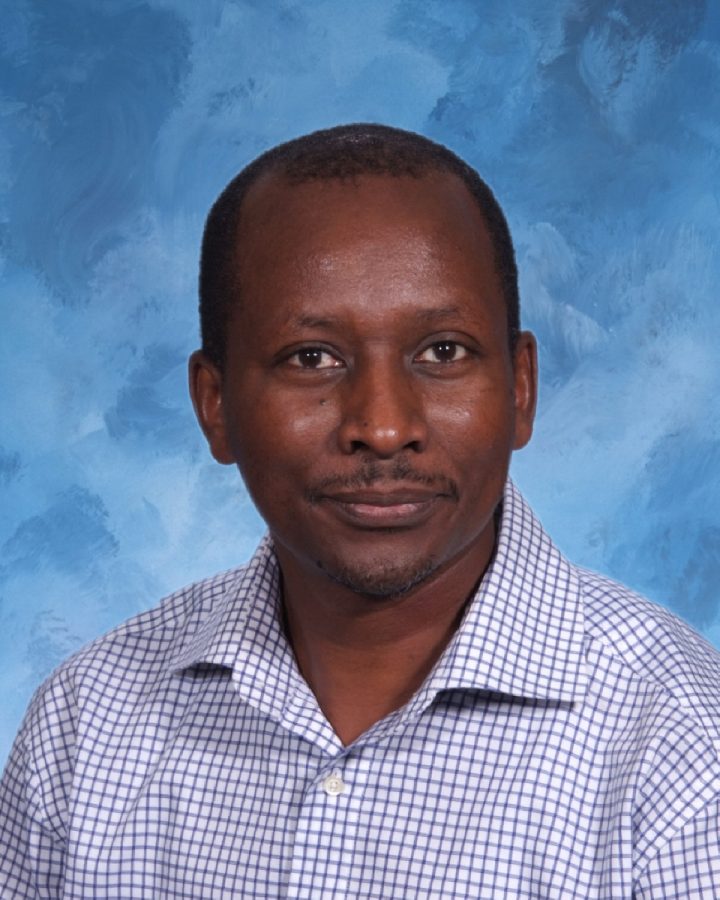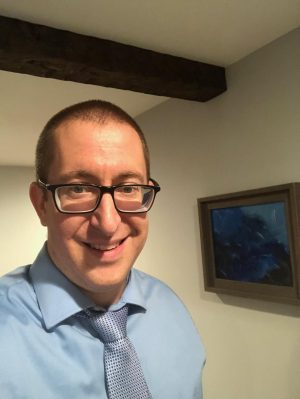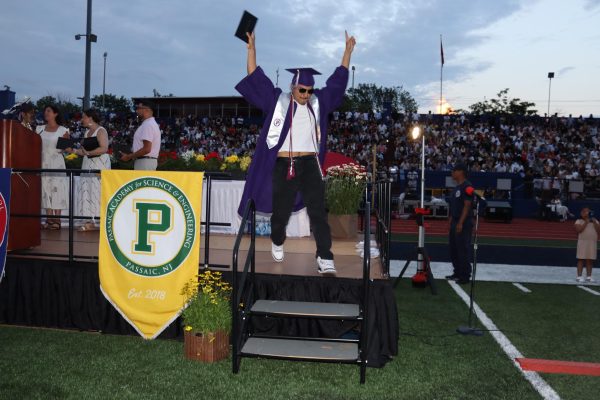Teacher Spotlight: Dr. Korir, Chemistry
Prep’s science teacher from Kenya is a doctor with two master’s degrees
Courtesy of Passaic Preparatory Academy
Dr. Geoffrey Korir
Dr. Geoffrey Korir is a Chemistry teacher at Passaic Preparatory Academy. It is his second year at Prep and first full-time. He has worked at Passaic for three years as a science teacher and he’s been teaching for almost 17 years overall.
He attended three different colleges and was a student award winner at UMass-Lowell. He has two master’s degrees and a doctorate! Dr. Korir is married and has three children, and he shows his desire for academic excellence and radiation safety by participating in multiple activities.
The Boulevard Online: How many years have you been teaching?
Dr. Korir: I am some of the lucky few who have had a chance to teach while studying. Over 25 years ago, when I qualified to join the University for my Undergraduate Studies in Kenya, I got a chance to teach science in our local high school as I waited for almost a year to join the university. After joining the University I worked as a Chemistry Laboratory instructor, which opened a door to tutor Chemistry for almost four years. During my first master’s degree, for over three years, I trained students and interns in the university nuclear science lab. In the United States, from 2008 to 2013, I served as Teaching Assistant, at the University of Massachusetts – Lowell. As from 2017 to date, I have taught Science in Paterson Public Schools and currently in Passaic Public Schools. Overall, therefore I have been teaching for almost 17 years!
TBO: Where did you grow up? What was it like?
Dr. Korir: I was born and grew up in Amerika Village in Kericho County, in Kenya, East Africa. I was raised in a large family of 10 where great emphasis is placed on hard work, commitment to individual responsibilities, and strong family ties. For seven years, I ran barefoot to my first school Lalagin Primary covering at least 24 kilometres including going for lunch at home. We plucked tea leaves on Saturdays and during school break to generate family income. We first learned how to read and write our mother tongue language before embarking on Swahili (National) and English the international language for the rest of our academic life. In the eighth and the final year for my primary education, I joined my dad who was working in the Kericho tea plantations called Brooke Bond Kenya Ltd. at that time. At the end of that year, I did and passed my Kenya Certificate of Primary Education that enabled me to join Kericho High School for my secondary education.
TBO: Why did you decide to teach at Passaic Prep?
Dr. Korir: It was while we were having a chat on our academic and professional journey with a colleague at the staff room at School of Information and Technology at the Paterson District. I was asked if I knew about the new academies being developed in Passaic District! I answered that I did not know and I was encouraged to check it out on the district website. When I checked the website, I found out that Passaic district was working with industry and universities to establish academies focusing on Advanced Placement, dual enrollment, and innovative courses. That captured my curiosity and interest leading to my job application and finally working on my dream job at Passaic Prep.
TBO: Do you believe Chemistry is challenging to teach?
Dr. Korir: No! I think to any student and teacher who wants to learn/teach nothing is impossible! There are plenty more opportunities than challenges. Time has changed from when we pipetted titration acids and bases with our mouths to using suction bulbs and automated pipettes. These advances offer the best opportunities ever to both the student and the teacher! Curiosity is limitless and technological advances are here! In the current scholarly environment, change is for the better! Therefore, the access to lots of educational platforms and resources requires effective teaching as well as enthusiastic learners!
TBO: Where did you go to college?
Dr. Korir: 1) I started here (B.S Chemistry and Physics at University of East Africa-Baraton)
2) Then here (M.S Nuclear Science at University of Nairobi)
3) And finally here (M.S in Radiological Protection then PhD in Biomedical Engineering and Biotechnology at UMass-Lowell)
TBO: What is your favorite memory from when you went to college?
Dr. Korir: My best memory:
TBO: Are you married? Do you have any kids?
Dr. Korir: Yes, I am married with three children, one girl and two boys. As a family, we support Mom and IHOPE a non governmental organization that facilitates United States doctors to provide impactful healthcare services such as surgeries to the communities in need globally.
TBO: Pets?
Dr. Korir: In the future, I want to have a German Shepherd dog.
TBO: Do you like any sports or other activities besides teaching? Do you do any clubs or sports at Prep?
Dr. Korir: I like athletics and soccer! During summer, I do gardening with tomatoes being my favorite. I hope to start a research club in Prep! Meanwhile, I do and collaborate in national and international research in radiological protection, patient safety and quality assurance! My desire for academic excellence and radiation safety research is shown by the recent seventeen (17) publications featured in both local and international peer reviewed journals. I also participate and present oral and poster presentations in both local and international conferences. The ResearchGate calculated my RG Score at 14.63 based on how other researchers interact with my research content, how often, and my credentials. The score was higher than 71% of ResearchGate members.
TBO: What do you think of teaching remotely?
Dr. Korir: Although online teaching has been in use for some time, I think remote teaching did not follow suit, not tested adequately and not used broadly!. I therefore think teaching remotely has been a real-time experiment! Yes, teaching continued and thanks for real-time improvements on this technological bridge. As of today, remote teaching and learning is available at a better level than ever before! It now presents many opportunities to both students and teachers but with the need for effective communication, motivation and discipline than ever before.
TBO: Since we are remote learning, what message would you give to your students that you haven’t met in person?
Dr. Korir: The power of human contact especially, in education is unquestionable! Some students learn better with bodily kinesthetic, intrapersonal, and interpersonal activities that are demanding to offer during remote learning. However, against all odds of minimal/absence of human contact, technical/internet issues, distractions at home among others, students need to take this challenging time or situation as an opportunity to learn endurance while working independently and staying on task with schoolwork. In this unprecedented school time one may wobble like a compass needle searching for a true north, stay focused soon and very soon you will find your true academic north that will lead you to doing the impossible for the benefit of humankind and the world.

Joselyn Mendieta, Staff Reporter, is a sophomore at Passaic Preparatory Academy. Her hobbies are reading, watching movies, and playing video games. She...












